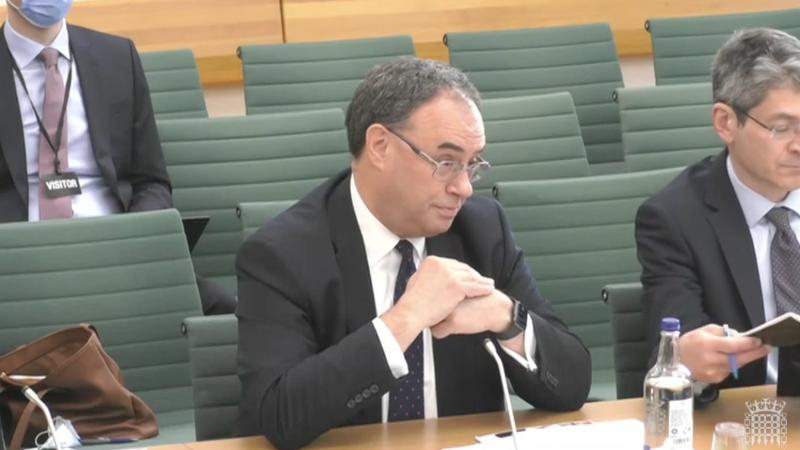
Angela Eagle has questioned Andrew Bailey on his call employers to show “restraint” in awarding pay increases and compared the £575,000 salary of the Bank of England governor to that of a care worker.
Bailey failed to remember how much he is paid when he appeared before the cross-party Treasury committee today, telling MPs: “It’s somewhere over £500,000. I can’t tell you exactly what it was, I don’t carry that around in my head.”
The Bank of England governor agreed with Eagle that his take-home pay was “substantially” more than that of people working in care homes throughout the pandemic. Bailey’s annual pay is 31 times the average pay for a care worker and 18 times that of the UK median for a full-time worker.
He controversially said earlier this month that he wanted to “quite clear restraint” in annual wage-bargaining processes between workers and employers in a bid to combat inflation. His comments prompted widespread condemnation.
Bailey said today that it is “quite understandable” that people would want to see their wages keep pace with inflation but argued that workers pushing for higher pay would result in “second-round” effects.
Consumer price inflation is expected to peak around 7% when people are hit with a rise in bills and tax in April. Large banks, however, have announced bumper bonus payments for staff. Barclays handed out £1.9bn in bonuses for 2021. HSBC and taxpayer-backed NatWest have also announced big increases in pay.
“We’re in the middle of a huge bonanza for banker bonus payouts,” Eagle told Bailey during the committee session today. The Bank of England governor responded by saying that “the same point holds about restraint for everybody”.
Bailey told BBC Radio 4’s Today programme earlier this month that “we do need to see restraint in pay bargaining otherwise it will get out of control”. Asked if the bank was implicitly asking workers not to demand big pay rises, he said: “Broadly, yes.”
His comments were condemned by trade union general secretaries as households face the most detrimental blow to their living standards in three decades as spiralling energy prices fuel inflation, outstripping wage growth.
TUC head of economics Kate Bell said inflation was being driven by rising energy costs, not pay demands, and analysis from the trade union federation highlighted that real wages are set to fall by an average of £50 a month this year.
The GMB trade union invited Bailey, following the criticism of his call for pay restraint, to meet care workers. The governor said this afternoon that he would visit a “whole range” of care homes “because it is an important sector”.
General secretary Gary Smith said: “GMB members working in care homes will want to know why he thinks they shouldn’t ask for a big pay rise when monstrous bonuses are once again being enjoyed by bankers.”




More from LabourList
Government announce SEND reform in schools white paper
SPONSORED: ‘Industrial hemp and the challenge of turning Labour’s priorities into practice’
‘A day is a long time in politics, so we need ‘action this day’’